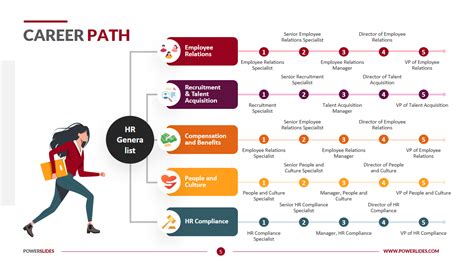As a former teacher, you've spent years shaping young minds and inspiring future generations. But what if you're ready for a change? Perhaps you're looking for a new challenge, or maybe you're seeking a better work-life balance. Whatever the reason, you're not alone. Many former teachers are exploring new career paths, and one exciting option is in ed tech.
Ed tech, short for education technology, is a rapidly growing field that combines teaching expertise with technology to create innovative learning solutions. With your teaching background, you've got a solid foundation to excel in this industry. Let's explore some ed tech jobs that might be a great fit for former teachers like you.
What is Ed Tech?

Ed tech encompasses a broad range of technologies and tools designed to enhance teaching, learning, and educational administration. From learning management systems (LMS) and online course platforms to educational software and apps, ed tech is revolutionizing the way we learn.
As a former teacher, you're already familiar with many of the concepts and principles that underlie ed tech. Your experience in the classroom has given you a unique perspective on what works and what doesn't when it comes to teaching and learning. By combining your teaching expertise with technology, you can create innovative solutions that make a real difference in the lives of students and educators.
Ed Tech Jobs for Former Teachers
Here are some exciting ed tech job opportunities that might be a great fit for former teachers:1. Instructional Designer
As an instructional designer, you'll create engaging online courses, tutorials, and educational materials that cater to diverse learning styles. Your teaching experience will help you craft effective lesson plans, assessments, and learning objectives.
2. Educational Software Developer
If you have an interest in coding or programming, you might enjoy a career as an educational software developer. In this role, you'll design and develop educational software, apps, and tools that make learning more accessible and fun.
3. Learning Management System (LMS) Specialist
As an LMS specialist, you'll help educational institutions implement and manage learning management systems. Your teaching experience will give you a deep understanding of the needs of educators and students, enabling you to configure LMS platforms to meet their needs.
4. Ed Tech Project Manager
In this role, you'll oversee the development and implementation of ed tech projects, ensuring they're completed on time, within budget, and to the required quality standards. Your teaching experience will help you manage stakeholders, communicate effectively, and make informed decisions.
5. Online Course Creator
If you enjoy creating engaging online content, you might consider becoming an online course creator. In this role, you'll design and develop online courses, tutorials, and educational resources that cater to diverse learning styles and needs.
6. Ed Tech Sales and Marketing Specialist
As an ed tech sales and marketing specialist, you'll promote educational products and services to schools, universities, and other educational institutions. Your teaching experience will give you a deep understanding of the needs of educators and students, enabling you to effectively communicate the value of ed tech solutions.
7. Educational Researcher
In this role, you'll conduct research on educational technology, analyzing its effectiveness, identifying areas for improvement, and informing the development of new ed tech solutions. Your teaching experience will give you a unique perspective on what works and what doesn't in educational settings.
8. Ed Tech Support Specialist
As an ed tech support specialist, you'll provide technical support and training to educators and students, helping them to effectively use educational technology. Your teaching experience will enable you to communicate complex technical concepts in a clear and concise manner.
Skills Required for Ed Tech Jobs

While your teaching experience provides a solid foundation for a career in ed tech, you may need to acquire some additional skills to succeed in this field. Here are some key skills to consider:
- Technical skills: Familiarity with educational software, LMS platforms, and other ed tech tools.
- Communication skills: Ability to communicate complex technical concepts to educators and students.
- Project management skills: Ability to manage multiple projects, prioritize tasks, and meet deadlines.
- Analytical skills: Ability to analyze data, identify trends, and inform decision-making.
- Creativity: Ability to think creatively and develop innovative solutions to educational challenges.
How to Get Started in Ed Tech
If you're interested in pursuing a career in ed tech, here are some steps to get started:- Update your skills: Invest in courses or training programs that help you develop the technical skills required for ed tech jobs.
- Network: Attend ed tech conferences, join online communities, and connect with professionals in the field to build your network.
- Build a portfolio: Create a portfolio that showcases your experience, skills, and achievements in education and ed tech.
- Consider a graduate degree: If you're interested in advanced roles or leadership positions, consider pursuing a graduate degree in educational technology or a related field.
- Stay up-to-date: Stay current with the latest trends, technologies, and research in ed tech to remain competitive in the job market.
Conclusion
As a former teacher, you've got a unique set of skills and experiences that can be applied to a career in ed tech. By exploring ed tech job opportunities, updating your skills, and building your network, you can create a fulfilling and rewarding career in this exciting field.Gallery of Ed Tech Jobs






FAQ Section
What is ed tech?
+Ed tech, short for education technology, is a rapidly growing field that combines teaching expertise with technology to create innovative learning solutions.
What skills do I need to get started in ed tech?
+While your teaching experience provides a solid foundation, you may need to acquire some additional skills, such as technical skills, communication skills, project management skills, analytical skills, and creativity.
